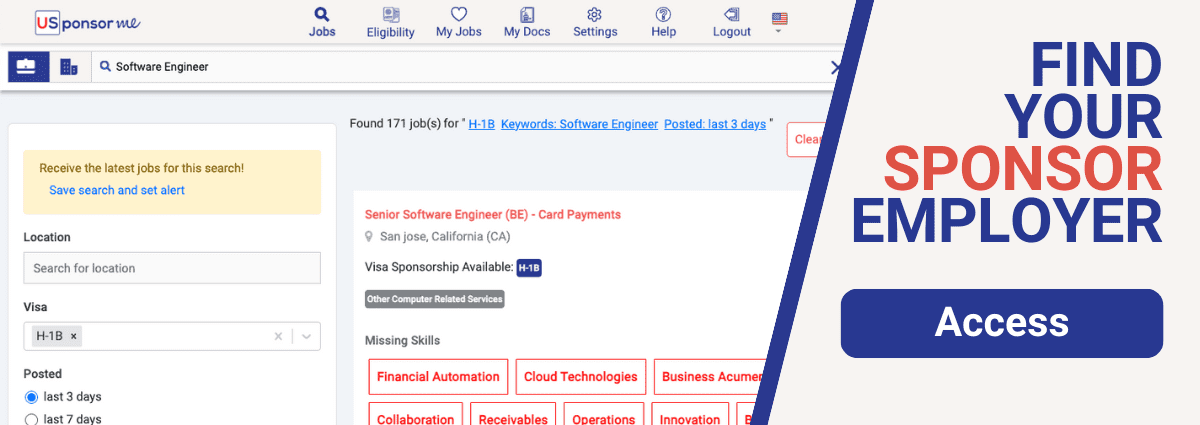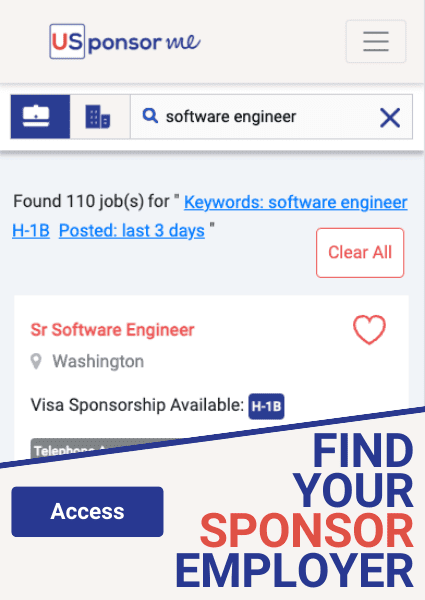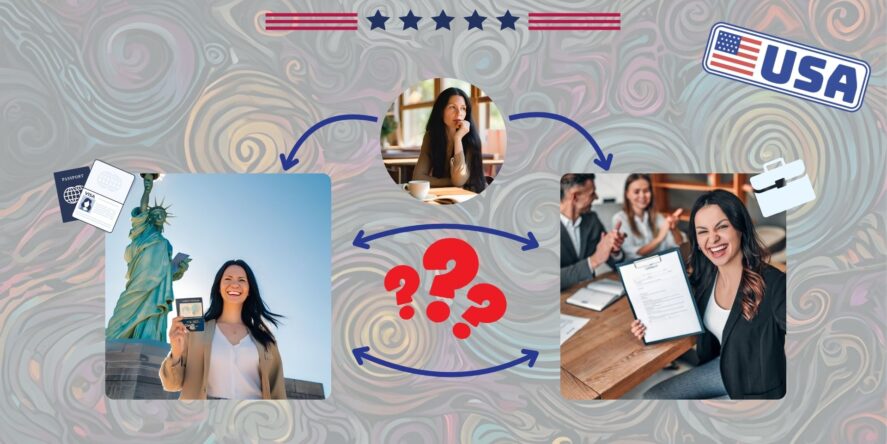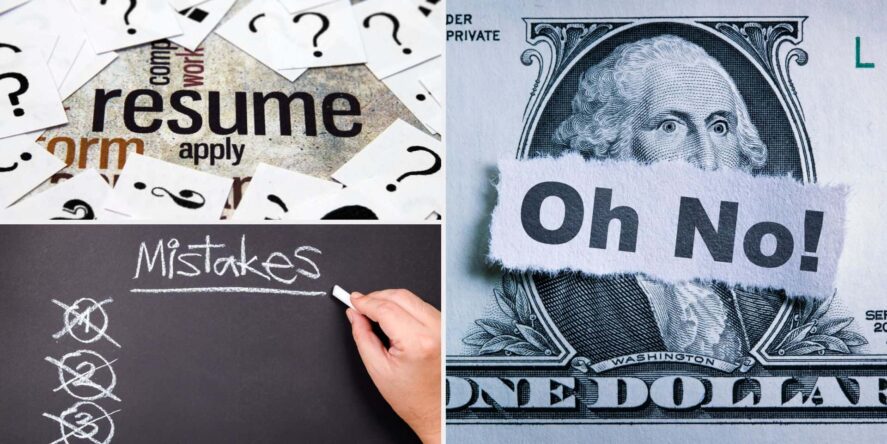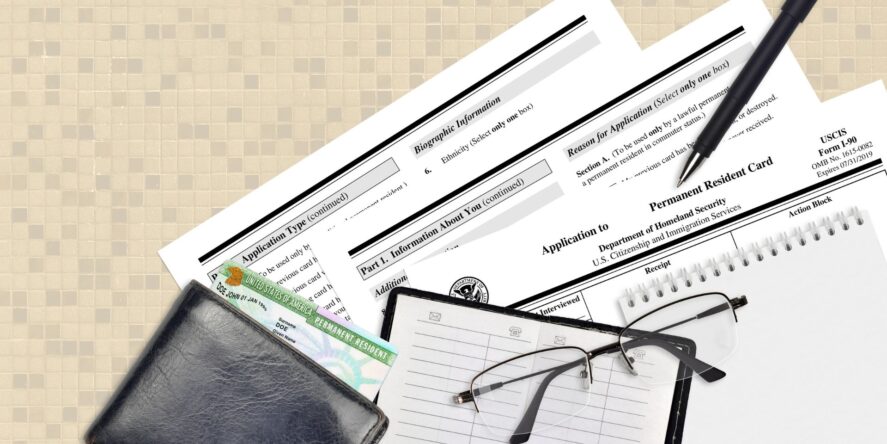You may have heard from people around you, read on the Internet, or been told by an immigration lawyer that you are eligible for the H-1B visa, which is the best visa for you.
Yes, you are eligible for the H-1B visa. And yes, it’s the best you could have. But will you find a company that will sponsor you? …
With my experience finding work in the US as a foreigner, I can tell you precisely which cases you should target this visa for your job search and which cases you shouldn’t.
Reminder on how the H-1B visa works.
Unlike other visas, it is only possible to apply for H-1B once a year (except for the “cap exempt” case). The petition must be filed in early April (the opening date for petitions) for issuance between October of the same year and January of the following year, which means a delay of 6 to 10 months.
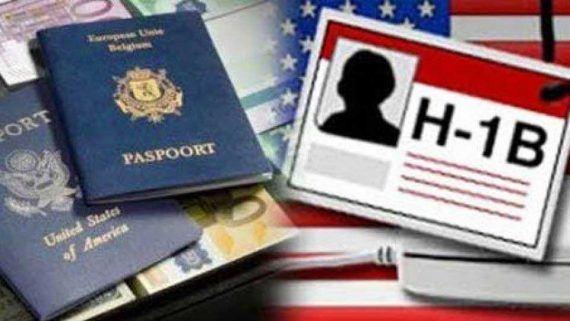
To make things worse, the H-1B visa is subject to quotas, except for cap-exempt H-1B. The US government issues a maximum of 1,400 visas annually for Chileans, 5,400 for Singaporeans, and 65,000 for all others. And 20,000 more are reserved for Master’s graduates from a US institution who are not first picked among the 65,000.
However, because of its popularity, the USCIS (U.S. Citizenship and Immigration Services) has received more than 170,000 petitions yearly for this visa since 2014, almost three times more requests than the quotas.
In which case, should/shouldn’t you aim for this visa?
If you are Chilean or Singaporean, have a Master’s degree from a US institution, and/or want to work for a non-profit organization (concerns cap-exempt), then yes, you can target the H-1 B visa for your job search because you won’t be concerned about the lottery chance.
If you are Indian and working in IT, you can find a multinational computer service company that sponsors thousands of H-1Bs for IT engineers every year. Generally, those companies spend little time on each candidate’s profile. And they know very well that only a third of the workers they sponsor will make it on US soil with this visa. We are discussing coping with the lack of computer skills in the United States. In this case, you can find a sponsor company, but you will not be sure to get the H-1B visa: you have a one in three chance.
If you do not fit any of these previous criteria, then I do not advise you to aim for an H-1B visa, even if you are eligible and the visa suits you best. I can assure you that you will not find a company to sponsor this visa if you are not already working for them (as in Max’s case).
A visa that suffers from its popularity
For those who did not follow our setbacks, Max’s company has filed three requests for the H-1B visa (almost one per year) in four years. The three petitions were certified, but Max has never been drawn. 🙁 One chance out of three: no chance for us after three tries.
Why can’t you find a company to sponsor you for this visa?
Except if you are in one of the cases we saw earlier in this article, you will not find any company that accepts to sponsor this visa.
Do you still have any doubts? Put yourself in the company’s shoes …
You are hiring. Even if it is not urgent, would you risk paying more than $5,000 (the visa price) and waiting for 6 to 10 months for someone you do not know? Without knowing if the person can join your company in the end, and with more chance of a negative answer than a positive one?
That’s a lot of disadvantages.
Regular companies can not afford to be subjected to a lottery for their recruitment.
As a recruiter, I would not take this risk. In the last three years of coaching and supporting candidates in finding jobs in the USA, I haven’t seen a company ready to do that!
If you know one, please let me know! And I will be happy to change this article. 😉
But why is this visa still popular?
Good question. Why do I tell you that you will not find any company to sponsor you when thousands of companies filed more than 170,000 petitions last year? Crazy, right?!
Did you look at the statistics for your country? Let’s take France. In 2014, only 1,700 H-1B visas were issued, much less than the E-2 or J-1 visas.
Further, in 2018, 67% of the petitions filed were for Indian nationals working in the IT sector. Do you understand now?
As I explained earlier in this article, multinationals in the IT service industry sponsor thousands of H-1Bs yearly for large-scale IT engineers to address the US shortage of IT skills. Generally, these Indian companies spend little time on the profile of each candidate, knowing that if they fill out petitions for 1,000 people, they will ultimately receive 350 workers. It’s mathematical.
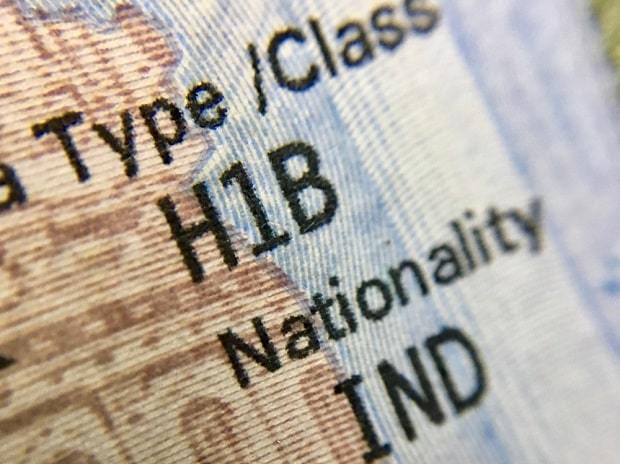
For the remaining 30%, companies often make these petitions for their employees who are already working for them under another non-immigrant visa, just like Max and his colleagues.
The solutions
I hope you understand that, even if you are eligible, targeting the H-1B visa to work in the US is not the right solution. Your profile does not meet the criteria in this article.
At first, targeting another visa, perhaps less popular for your profile, is preferable, for which you can find an employer who can sponsor you.
Once you work for the company, having them sponsor you for the H-1B visa will be much easier, as it was for Max. 🙂
There are 185 types of visas, some without deadlines and quotas. So you are undoubtedly eligible for a different kind of visa than the H-1B … For ideas, check out the success stories to see how those before you found their job and get an H-1B visa!


